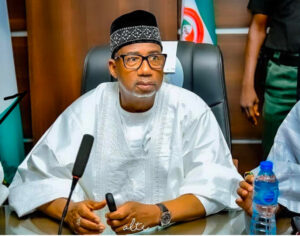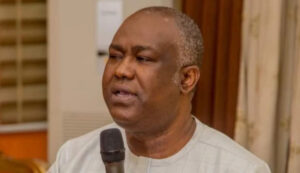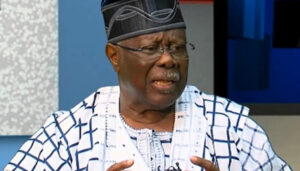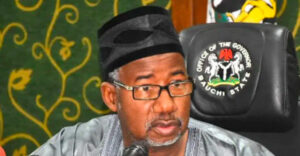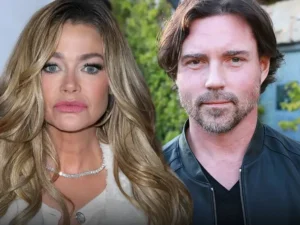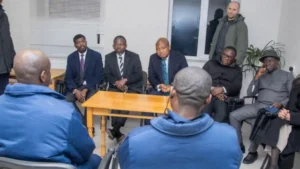In a shocking admission, Tony Okocha, chairman of the Rivers State chapter of the All Progressives Congress (APC), confessed to being involved in election rigging while serving as the Chief of Staff to former Rivers State Governor, Rotimi Amaechi. This admission, made during a live interview on Channels TV, has sent ripples through the political landscape of Rivers State and deepened the internal crisis within the APC.
Okocha, who served as Amaechi’s Chief of Staff from 2007 to 2015, made it clear that he was not trying to hide his past. “On the issue of whether I rigged the election, I did not hide it. I should be paid as a whistleblower,” Okocha declared during the interview.
His statement was part of a larger discussion surrounding his removal as Rivers APC Caretaker Committee chairman by a Port Harcourt High Court. In response to his dismissal, Okocha accused his successor, Chief Emeka Beke, of being involved in similar election misconduct.
Okocha’s claim to be a whistleblower rather than a criminal sparked an intense debate. The interviewer quickly pointed out that individuals who rig elections are typically prosecuted and jailed. Okocha, however, stood firm, arguing that his confession should not lead to punishment under the law, especially when the crime happened years ago. He compared his situation to a thief confessing to a past robbery and stated, “Are you saying that the law will now take retroactive effect? The answer is No.”
Okocha explained that his public confession was not meant to boast about his past actions but to prevent others from following in his footsteps. He described his role in the past elections as a learning experience, which allowed him to recognize when others, including members of the APC, were attempting to use similar underhanded tactics.
“When you have an idea of a thing and you see the other person also wants to use the tactics that you already know. You will shout. That is the reason why we went to court,” Okocha explained. He suggested that his knowledge of election rigging enabled him to identify it in others, and this is why he wanted to alert the public.
Chief Emeka Beke, who was reinstated as Rivers APC chairman after Okocha’s removal, was present during the interview and did not take Okocha’s allegations lightly. Beke firmly denied any involvement in election rigging, claiming that Okocha was falsely implicating him.
Beke argued, “During the election, was I part of it? Have you ever heard me say rig election?” He continued, asserting that he had no role in the rigging and that Okocha’s confession should not drag him into the scandal. Okocha, however, countered by asking, “Are you saying that under the Amaechi government, you never participated?” implying that Beke was complicit during Amaechi’s tenure.
Beke stood his ground, stating, “I did not follow you to the election. I did not partake in any election whatsoever. When you wake up and confess and you want to put me there. I am not part of that. You rigged the election, and we are going to ask the police to arrest you.”
This high-profile argument is just one symptom of the larger internal struggles plaguing the Rivers APC. Okocha’s admission has intensified the tension between different factions within the party, particularly between him and Beke. The leadership tussle has been brewing for some time, culminating in the court’s decision to replace Okocha with Beke.
The exchange between the two APC leaders reveals the deep fractures in the party, and Okocha’s explosive revelation may have far-reaching implications. His call to be considered a whistleblower for his confession is not without precedent, but it raises serious ethical and legal questions. Can a self-confessed election rigger truly claim whistleblower status after benefiting from the rigging for years?
Furthermore, the implications of Okocha’s confession extend beyond the internal dynamics of the Rivers APC. It sheds light on the broader issue of election rigging in Nigerian politics, where manipulation of votes is often seen as a tool for maintaining power. By admitting his involvement, Okocha may have opened the door for deeper investigations into past elections in Rivers State, which could lead to wider political consequences.
The public confession has raised questions about potential legal actions against Okocha. While he insists that his confession should not lead to prosecution due to the statute of limitations, the police could still take action based on the public nature of his admission. Beke’s statement that he would push for Okocha’s arrest adds to the uncertainty surrounding what happens next.
Okocha’s argument that the law should not act retroactively might hold some weight, but the moral and ethical implications of his confession cannot be easily dismissed. His willingness to admit his involvement, combined with the boldness of accusing others, sets a complex precedent in Nigerian politics, where whistleblowers are not often associated with confessing to crimes.
The coming days will likely see increased scrutiny on the Rivers APC, and the ongoing leadership battles may take new turns as more details of the election rigging scandal unfold. Whether Okocha will face legal repercussions or be seen as a whistleblower trying to expose corruption remains uncertain, but one thing is clear—his admission has reignited debates about the integrity of Nigeria’s electoral processes.

